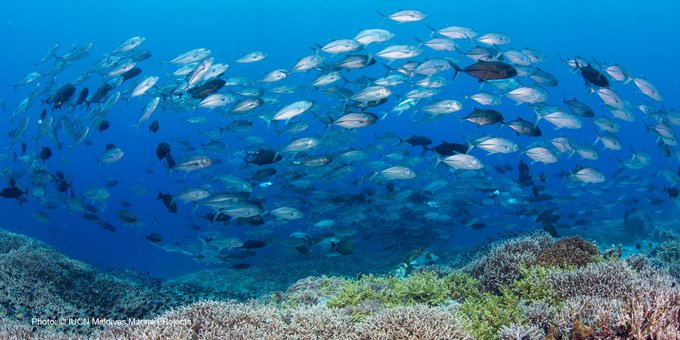The environmental crisis is most challenging than ever, with the seas being warmer than at any point in the human history and life underwater is facing many threats. Thus, the Sustainable Development Goal (SDG) 14 “Life Under Water” establishes a wide-ranging goal to “conserve and sustainably use the world’s oceans, seas and marine resources”.
The severity of the environmental crisis is demonstrated by the plight of perhaps the single most important marine ecosystem: coral reefs.
Reefs play an important role for human communities and their global economy, providing food security for hundreds of millions of people and coastal protection for hundreds of millions more.
Coral reef collapse is directly linked to rising sea temperatures. Corals live close to their upper thermal limit and even modest temperature rises can disrupt their relationship with their algae lodger. This leads the often-kaleidoscopic coral to turn white as it dies, a process known as bleaching.
An alarming report by IPCC in 2018 focused on the respective impacts of 1.5C and 2C and discussed how even under 1.5C of warming – the most ambitious goal in the Paris Agreement and one that many analysts think is already close to being out of reach – the world would likely see “the further loss of 90% of reef-building corals compared to today”.
However, rising temperatures are not the only threat to the environment. Carbon emissions have contributed to the worsening of the climate, leading to shipping industry taking steps to resolve the situation and mitigate its impact, such as the new “trend” of carbon storage.
Considering the above, to deal with the environmental damage caused by the CO2 emissions, DNV GL proposes two steps to be taken:
- reduce and prevent CO2 emissions to the extent possible.
- remove CO2 from the atmosphere and store it safely.
In efforts to fight climate change, the International Chamber of Shipping (ICS) unveiled proposals to raise up to $5bn for green shipping technology R&D through a $2 a tonne levy on marine fuels. The plan joins proposals from some shipping operators and NGOs for new fuel efficiency standards, carbon market mechanisms, and speed limits for the sector, all of which are designed to curb emissions.
In the meantime, commercial fishing is threating the oceans and the marine environment. Consequently, to closely monitor commercial fishing, the UK Maritime Coastguard Agency stated that they will use technology to monitor commercial fishing in their area.
A report called ‘Legal Opinion on Video Monitoring on Fishing Vessels with Special Focus on Other Comparable Cases’ was published on March 7 2019, showing that the use of video monitoring, or Remote Electronic Monitoring (REM), can be used on board EU fishing vessels to ensure proper catch reporting, and end illegal discarding of fish.
Moreover, plastic debris is another unsolved issue, with plastic found even at the deepest point of the Mediterranean sea. Plastics are just one of numerous pollutants endangering life in the oceans
Despite the dramatic challenges outlined above, it is neither the collapse of the ocean’s richest ecosystems, nor the decline of its marine life, that has propelled the plight of the oceans into public consciousness.
Now, many are the shipping majors that are banning single-use plastic onboard their vessels, such as India, to try and mitigate the problem.






























































